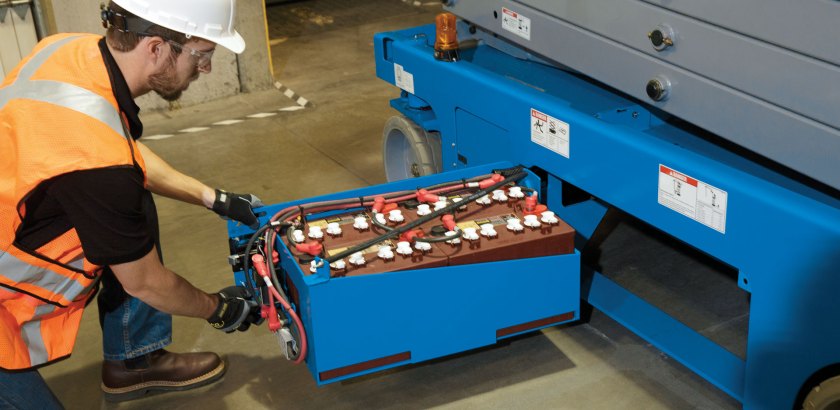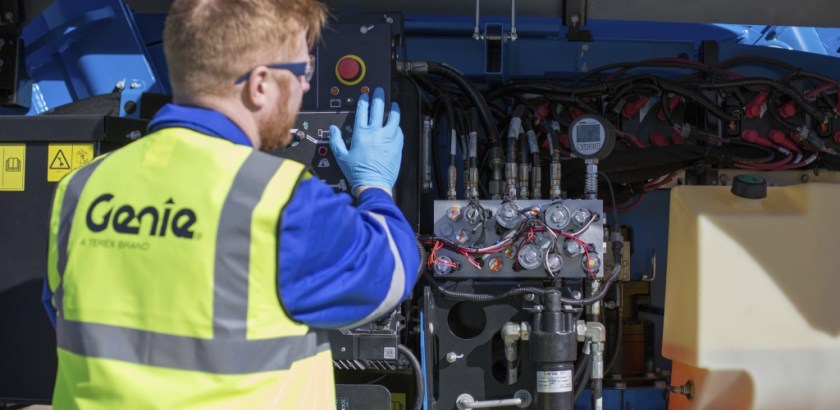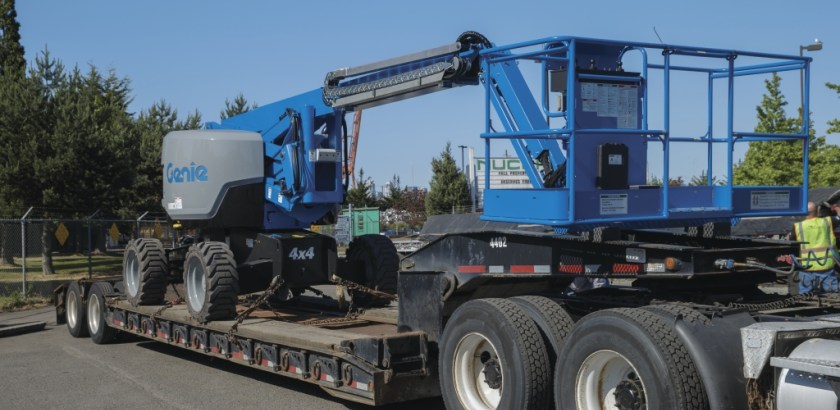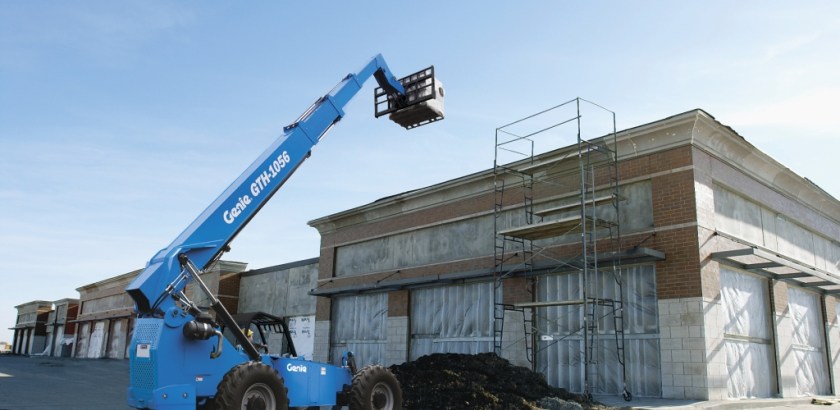Routine Maintenance Overview for Genie Telehandlers
by Josh Taylor - Product Manager On Jul 19, 2018, 03:00 AM
Subscribe To Aerial Pros
Filter by tags
Reminding your customers about the importance of checking fluid levels and greasing the machine daily should be something your employees do whenever a telehandler goes out on rent. While those daily tasks will reduce the chance of breakdowns, less frequent manufacturer recommended maintenance tasks, such as quarterly and annual to dos, should never be ignored because they are equally as important to the productivity of the machine and getting you the best rental return on invested capital (rROIC).
Establish a process
Whether your service department is responsible for maintaining a large or small equipment fleet, developing a process and a way to alert your employees when routine maintenance needs to be performed will help ensure your telehandlers needs are not neglected.
Machine hours will determine when certain maintenance tasks need to be performed, while others will go according to the age of the machine. Genie divides its telehandler schedule into three subsections:
- Commissioning: A series of required one-time maintenance procedures that need be performed at the 50- and 150-hour intervals
- Quarterly and Annually: Maintenance procedures that need to be done every three months or once a year
- Programmed: Procedures that need to be done based on the machine’s operating hours. Simple tasks, like changing the engine oil and fuel filters at the proper intervals, will go a long way in preventing potential problems.
Whenever you add a new model to your fleet, you should spend a few minutes reviewing the routine maintenance schedule, so you know what needs to be done when and then set up a series of reminders in your system. Operating a fleet of telehandler models from one manufacturer will help make establishing a schedule easier as many manufacturers, including Genie, outline comparable programs for every model in their telehandler product line. For example, every Genie® telehandler model comes with its own maintenance manual; however, there are similar maintenance schedules that Genie telehandlers all share. Those are outlined below:
Commissioning Procedures
 These are one-time tasks, outlined in the machine’s maintenance manual, need to be done on all new machines.
These are one-time tasks, outlined in the machine’s maintenance manual, need to be done on all new machines.
@ 50 hours
- Inspect the tires, wheels and lug nut torque
- Replace the hydraulic filter
- Check belt tensions
- Check engine mounts
- Check hose clamps
- Replace the engine oil if required
@ 100 hours
- Change the axle differential oil and axle planetary drive oil if required
@ 150 hours
- Visual inspection of hydraulic oil
Quarterly Procedures
- Check for service bulletins on your Genie telehandler.
- To do this, enter your machine’s serial number at go.genielift.com (for North America, Latin America and Asia. See your maintenance manual for instructions in other parts of the world).
- Complete any open bulletins is essential to safe machine operation.
- Inspect the following components on your machine. You will find more detailed information in the maintenance manual.
- Look at the battery — are the connections tight and corrosion free?
- Inspect electrical wiring
- Check on the boom wear pads
- Look for any loose nuts and bolts on the exhaust system
- Inspect the tires, wheels and lug nut torque
- Check the fork level and auxiliary hydraulic hoses tension
- Make sure the fuel and hydraulic tank cap venting system is working properly
- Visually inspect the hydraulic oil
- Make sure the engine air filter is clean
- Lubricate the driveshaft
- Inspect and lubricate the sequencing chains (only on certain models)
Annual Procedures
- Do all tasks outlined on the quarterly list
- Replace the hydraulic tank return filter element. A dirty or clogged filter will cause the machine to perform poorly and could lead to component damage
- Replace the cab air intake filter element (if equipped)
Programmed Procedures
- Lubricate the boom. This task should be performed every 8 hours or daily
- Engine maintenance — refer to the telehandlers Engine Operator and Maintenance Manual for details
- Transmission maintenance
- Replace transmission oil and filter every 1000 hours
- If your telehandler has a hydrostatic transmission, change the gearbox oil every 1,000 hours
- See Operator and Maintenance Manualfor details
- Axle maintenance — see model specific Engine Operator and Maintenance Manual
- Test or replace hydraulic oil — should be done every 2,000 hours
Following the manufacturer’s recommended maintenance schedule outlined in your telehandler’s maintenance manual is the best way to ensure the best performance and reduce the risk of unplanned downtime.
Related Posts

Aerial Battery Maintenance Tips
A well maintained battery can yield up to three times longer equipment life.
Continue Reading

Maintenance Tips for Your Tier 4 Final Aerial Work Platforms
After decades of preparation, aerials with Tier 4 Final engines are beginning to find their way into your rental fleets.
Continue Reading

National Safety Stand-Down 2017: Tips for Inspecting Your Booms for Maintenance Parts
We know keeping your equipment up and running on the job is at the utmost importance for your business.
Continue Reading


